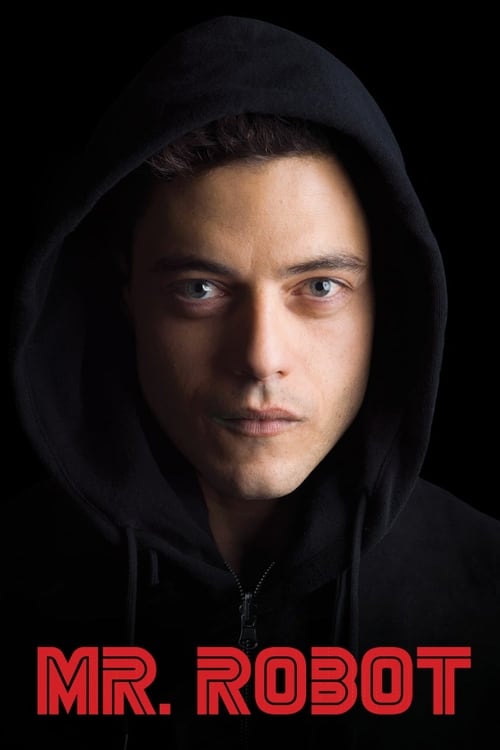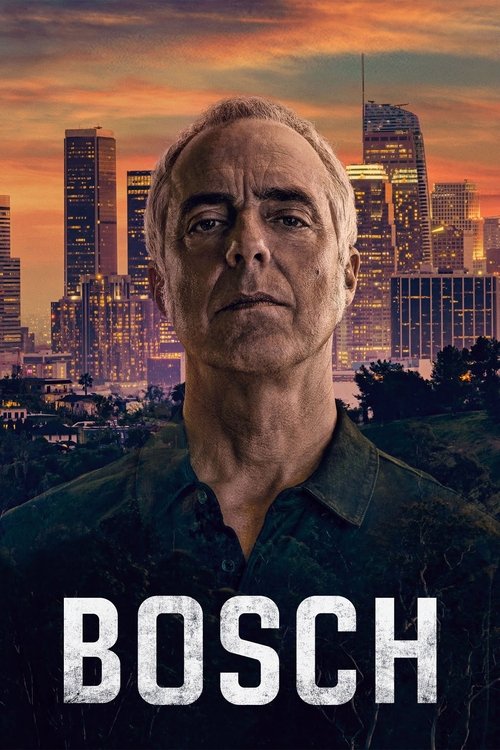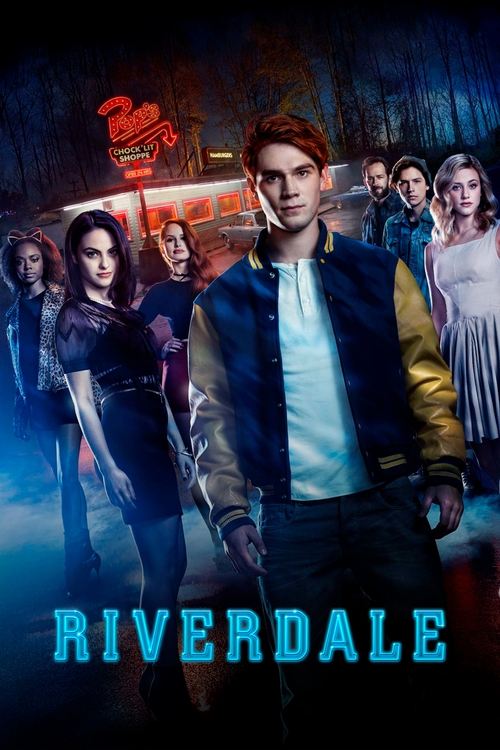
Ask Your Own Question
What is the plot?
Elliot Alderson, a cybersecurity engineer in New York City, struggles with social anxiety and depression. He works for a company called Allsafe, which provides security for the multinational corporation E Corp, often referred to as "Evil Corp" by Elliot. He secretly hacks into the lives of those around him, including his therapist, Krista, and his childhood friend, Angela Moss, who also works at Allsafe. Elliot's internal monologue reveals his disdain for the corporate world and his desire to bring down E Corp, which he blames for his father's death due to a product recall.
One night, while hacking, Elliot is approached by a mysterious figure named Mr. Robot, who leads a group of hacktivists known as fsociety. Mr. Robot recruits Elliot to join their cause, which aims to erase all debt by hacking into E Corp's data center and encrypting their financial records. Elliot is initially hesitant but is drawn in by the idea of fighting against the oppressive corporate system. He attends a meeting with fsociety, where he meets other members, including Darlene, who is revealed to be his sister.
Elliot's first major task for fsociety involves hacking into a company called Steel Mountain, which houses E Corp's data. He successfully infiltrates the facility, using a combination of social engineering and technical skills. During this mission, he encounters a security guard, whom he must incapacitate to avoid detection. Elliot's internal conflict grows as he grapples with the morality of his actions, but he ultimately completes the hack, stealing crucial data.
As Elliot becomes more involved with fsociety, he begins to experience flashbacks of his childhood, revealing a traumatic relationship with his father and the impact of his father's death on his psyche. He also struggles with his relationship with Angela, who is unaware of his hacking activities and the extent of his mental health issues. Meanwhile, Angela is pursuing a job at E Corp, believing it will help her career, which creates tension between her and Elliot.
The group plans a major attack on E Corp's data center, which culminates in a successful hack that erases all consumer debt. The aftermath of this hack leads to chaos in the financial world, with people celebrating the sudden freedom from debt while others face dire consequences. Elliot's actions have unintended effects, including the death of a close friend, which weighs heavily on him.
As the season progresses, Elliot's mental state deteriorates. He begins to question his reality and the motivations of those around him. He discovers that Mr. Robot is a manifestation of his own mind, representing his desire to fight against the system. This revelation leads to a confrontation between Elliot and Mr. Robot, where Elliot struggles to assert control over his own actions.
In a pivotal moment, Elliot learns that Darlene is also deeply involved in fsociety and has been orchestrating events alongside him. Their sibling bond is tested as they navigate the consequences of their actions. Elliot's relationship with Krista becomes strained as he pushes her away, fearing that she will discover the truth about his hacking and mental health struggles.
The season finale sees Elliot facing the consequences of the hack on E Corp. He is arrested by the FBI, and the reality of his situation begins to sink in. The season ends with a cliffhanger, leaving viewers questioning Elliot's fate and the future of fsociety's mission against corporate greed.
What is the ending?
In the ending of "Mr. Robot," Elliot Alderson confronts the reality of his fractured psyche and the consequences of his actions. He faces Mr. Robot, the manifestation of his father, and ultimately chooses to embrace his true self. The series concludes with a sense of resolution as Elliot finds a way to reclaim his life, leaving viewers with a poignant reflection on identity and freedom.
As the final episode unfolds, the scene opens in a dimly lit room, where Elliot Alderson sits at a computer, the glow of the screen illuminating his face. He is deep in thought, grappling with the chaos that has unfolded around him. The tension is palpable as he reflects on the events that led to the current moment, the weight of his decisions pressing heavily on his shoulders.
Suddenly, the door swings open, and Mr. Robot, the embodiment of his father, enters. The atmosphere shifts, charged with unresolved conflict. Elliot's internal struggle is mirrored in the dialogue between them, a battle of wills as they confront the reality of their shared existence. Mr. Robot, with his familiar intensity, urges Elliot to embrace the chaos, to continue the fight against the oppressive forces of E Corp and the societal structures that bind them.
Elliot, however, is not the same man he once was. He stands firm, his resolve strengthening as he articulates his desire to break free from the cycle of manipulation and control. The room feels smaller, the walls closing in as the confrontation escalates. Elliot's voice rises, filled with determination as he declares that he wants to take charge of his own life, to step out from the shadows of his alter ego.
In a pivotal moment, Elliot reaches a breakthrough. He acknowledges the pain and trauma that have shaped him, but he also recognizes the power of choice. The camera captures the raw emotion on his face as he confronts his fears, the internal battle manifesting in a visceral way. The tension between him and Mr. Robot reaches a climax, and in a moment of clarity, Elliot chooses to reject the destructive path laid out before him.
As the scene shifts, we see Elliot stepping into the light, symbolizing his newfound freedom. The world outside is vibrant, contrasting sharply with the darkness of his internal struggle. He walks through the streets, the sounds of the city enveloping him, a cacophony of life that he is finally ready to engage with. The camera follows him closely, capturing the subtle changes in his demeanor as he embraces the reality of his existence.
In the final moments, Elliot stands before a mirror, a symbolic reflection of his journey. He gazes at his own image, a mixture of uncertainty and hope in his eyes. The screen fades to black, leaving viewers with a lingering sense of possibility. The series concludes not with a definitive answer, but with an invitation to reflect on the complexities of identity, the nature of freedom, and the choices that define us.
The credits roll, accompanied by a haunting score, echoing the themes of the series. The journey of Elliot Alderson, marked by turmoil and transformation, leaves an indelible mark, a testament to the struggle for self-acceptance and the quest for liberation in a world fraught with challenges.
Is there a post-credit scene?
In the TV show Mr. Robot, there is no post-credit scene in the traditional sense that you might find in superhero films or other franchises. The series is known for its intense storytelling and character development, and it typically concludes episodes with a strong narrative focus rather than additional scenes after the credits.
However, the final episode of Season 4, titled "Hello, Elliot," does have a significant closing moment that serves as a poignant conclusion to the series. In this scene, Elliot Alderson, played by Rami Malek, confronts his own identity and the various aspects of himself that have been at play throughout the series. The emotional weight of this moment is palpable as Elliot comes to terms with his past, his struggles with mental health, and the impact of his actions on those around him.
As the episode wraps up, viewers are left with a sense of closure regarding Elliot's journey, but also with lingering questions about the future and the implications of his choices. The final moments are reflective, emphasizing themes of self-acceptance and the complexity of human nature, which are central to the show's narrative.
Overall, while there are no traditional post-credit scenes, the series concludes with a powerful and thought-provoking ending that resonates deeply with the audience.
What is the significance of the character Mr. Robot in Elliot's life?
Mr. Robot appears as a mysterious figure who recruits Elliot into the hacktivist group fsociety. He embodies Elliot's anarchistic desires and serves as a catalyst for Elliot's journey into the world of hacking and rebellion against corporate control.
How does Elliot's relationship with his sister Darlene evolve throughout the series?
Elliot and Darlene's relationship is complex, marked by moments of deep connection and conflict. Darlene often acts as a bridge between Elliot and the outside world, but their differing views on fsociety's methods create tension, especially as the stakes rise.
What role does the Dark Army play in the plot of Mr. Robot?
The Dark Army is a powerful hacking group that becomes increasingly influential in the series. They are involved in various plotlines, including the manipulation of events surrounding the E Corp hack and their connection to key characters like Whiterose, who has her own agenda.
What is the significance of the '5/9 Hack' in the storyline?
The '5/9 Hack' is a pivotal event in the series where fsociety successfully hacks E Corp, wiping out consumer debt and causing chaos in the financial system. This act sets off a chain reaction of events that drives the narrative forward and impacts all characters involved.
How does Elliot's mental health affect his interactions with other characters?
Elliot's struggles with mental health, including his dissociative identity disorder, significantly impact his relationships. His perception of reality is often skewed, leading to misunderstandings and conflicts with characters like Angela, who is trying to navigate her own path in the corporate world.
Is this family friendly?
In the TV show "Mr. Robot," there are several scenes and themes that may be considered objectionable or upsetting for children or sensitive viewers.
-
Violence and Threats: The series contains scenes of physical violence, including fights and threats of harm. Characters may be seen in confrontational situations that escalate to aggression.
-
Drug Use: There are instances of drug use depicted throughout the series. Characters are shown using various substances, which may be unsettling for younger audiences.
-
Mental Health Struggles: The protagonist, Elliot Alderson, grapples with severe mental health issues, including depression and anxiety. His experiences can be intense and may resonate deeply with viewers who have similar struggles.
-
Sexual Content: There are scenes that include sexual situations and nudity, which may not be appropriate for younger viewers. The portrayal of relationships can be complex and sometimes unhealthy.
-
Language: The dialogue in "Mr. Robot" includes strong language and profanity, which may be offensive to some viewers.
-
Dark Themes: The show explores heavy themes such as corporate greed, societal collapse, and personal identity crises. The overall tone can be quite dark and may be distressing for sensitive viewers.
-
Suicidal Ideation: There are moments that touch on suicidal thoughts and actions, which can be particularly triggering for some audiences.
-
Tension and Suspense: The series is filled with suspenseful moments that can create a sense of anxiety, as characters often find themselves in perilous situations.
These elements contribute to the show's mature rating and indicate that "Mr. Robot" is not family-friendly and may not be suitable for children or those who are sensitive to such content.
Why does whiterose kill herself?
In the series finale of "Mr. Robot," Whiterose, portrayed by BD Wong, finds herself cornered as the plans she meticulously orchestrated begin to unravel. The scene unfolds in a dimly lit room, where the tension is palpable. Whiterose, once a figure of immense power and control, is now faced with the consequences of her actions.
As she stands before a mirror, her reflection reveals the weight of her choices. The camera captures her expression, a mix of defiance and despair. She recalls the sacrifices she made for her vision of a world transformed, a world where she could reunite with her past. However, the reality of her situation becomes increasingly clear: her grand designs have failed, and the forces she sought to manipulate have turned against her.
In a moment of quiet resignation, Whiterose retrieves a gun from her desk. The atmosphere is thick with a sense of inevitability. She reflects on her journey, the people she has lost, and the dreams that have slipped through her fingers. The sound of her heartbeat echoes in the silence, a reminder of the life she once had and the power she wielded.
As she raises the gun, the camera lingers on her face, capturing the final flicker of determination. In that instant, Whiterose chooses to take control of her fate, opting for a final act of agency in a world that has betrayed her. The shot rings out, and the screen fades to black, leaving behind the haunting legacy of her ambition and the tragic end of a complex character.























